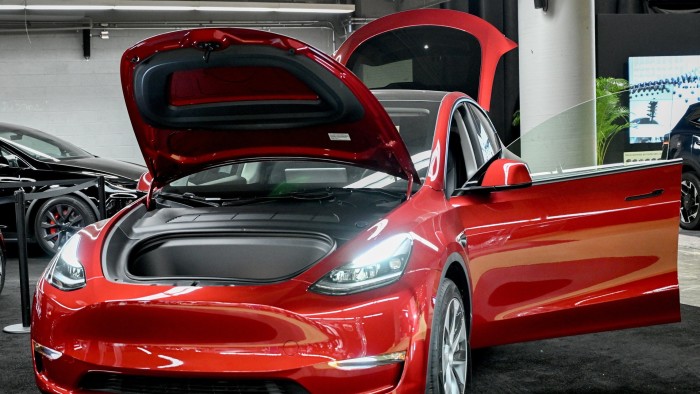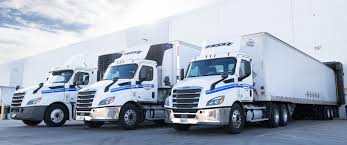Unlock the Editor’s Digest for free
Roula Khalaf, Editor of the FT, selects her favourite stories in this weekly newsletter.
Tesla is no longer predicting a rebound in its electric vehicle business this year, blaming tariff uncertainty, after its quarterly profits fell to the lowest level since the end of 2020.
Sales have fallen as chief executive Elon Musk’s political interventions have hurt Tesla in major markets, while it has warned that US tariffs will disrupt its supply chain.
Musk has come under investor pressure to address his absence from Tesla as well as the perceived brand damage from his close relationship with US President Donald Trump and his controversial role as head of the so-called Department of Government Efficiency (Doge).
Adjusted net income for the first quarter fell 39 per cent from a year earlier to $934mn, missing analyst expectations for $1.5bn, according to a filing from the Austin, Texas-based company on Tuesday. That was the lowest since Tesla reported a profit of $903mn in the fourth-quarter of 2020.
Tesla assembles all of its vehicles sold in the US locally but it is still exposed to the sweeping tariffs and disruptions to the global automotive supply chain since it sources components from other markets including battery cells from China.
“It is difficult to measure the impacts of shifting global trade policy on the automotive and energy supply chains, our cost structure and demand for durable goods and related services,” Tesla said in its earnings filing. It added that the there would be a larger tariff fallout on its energy storage business, which relies on battery cells from China.
Due to the uncertainty caused by Trump’s trade policies, Tesla said its rate of growth this year would depend on multiple factors including the pace of its rollout of autonomous vehicles. In the previous quarter, it had forecast that its vehicle business would return to growth in 2025.
Tesla is banking on a revival in vehicle demand following the recent upgrade to its flagship Model Y car. The company also said plans to start production of more affordable models by June remains on track.
Revenue fell 9 per cent to $19.3bn, missing the average $21.4bn analyst estimate, according to S&P Capital IQ.
Earlier this month, Tesla reported that its deliveries fell 13 per cent in the first three months of this year, compared with a year before, marking its worst quarter since 2022. It also lost its crown as the world’s largest electric-vehicle maker to Chinese rival BYD.
Tesla shares were flat in after-market trading following the earnings announcement, having halved from their high in mid-December.

In recent weeks, Tesla has spoken out against Trump’s trade war, which it has warned could make it a target for retaliatory tariffs and increase the cost of making vehicles in America.
Musk has also clashed with Peter Navarro, the architect of Trump’s trade policies, and the White House has said his government role, which was originally meant to continue into 2026, could end well before that once his work with Doge is complete.
Tesla’s first-quarter operating margin also fell to 2.1 per cent from 5.5 per cent a year earlier.







